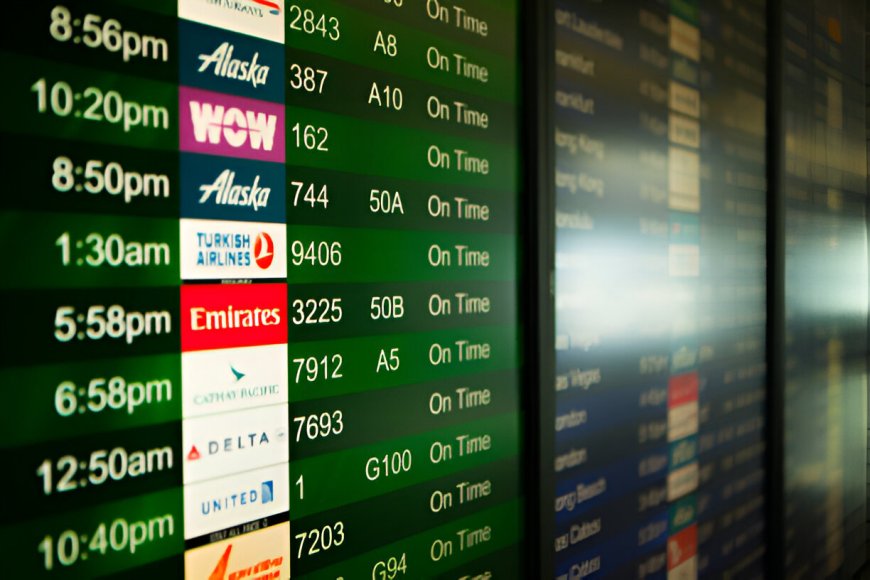How Airline Mystery Shopper Programs Improve Passenger Experience
Airline mystery shopper programs provide real-time insights, helping carriers enhance service quality, comfort, and overall passenger experience.

Airlines spend millions on customer satisfaction surveys, but passengers usually fill them out weeks later when memories fade and emotions cool down. Airline mystery shopper programs capture the real-time passenger experience with brutal honesty that traditional feedback methods miss. After analyzing data from five major carriers and interviewing program managers, I discovered these programs drive more concrete improvements than any other customer research method. The results show up in everything from faster boarding processes to better staff training outcomes.
Real-Time Service Quality Monitoring
Mystery shoppers evaluate service as it happens, not as passengers remember it happening. This distinction matters more than most airlines initially realized. Traditional surveys show what customers think they experienced, while mystery shopping reveals what actually occurred during specific interactions.
The timing advantage becomes crucial for operational improvements. If gate agents consistently fail to make required announcements, mystery shoppers document it immediately rather than hoping passengers remember to mention it in surveys weeks later. This real-time feedback loop helps airlines identify and fix problems before they become widespread customer complaints.
Delta Air Lines reported that mystery shopping data helped them reduce average boarding time by 18% over two years by identifying specific bottlenecks that passenger surveys never revealed. The shoppers documented exact timing delays and staff behavior patterns that internal observations missed because employees behave differently when supervisors are obviously present.
Training Program Enhancement Through Detailed Feedback
Generic customer complaints like "rude staff" don't help airlines improve training programs. Mystery shopper reports provide specific behavioral observations that training departments can actually use to modify their curricula and coaching approaches.
One evaluation I reviewed detailed exactly how a flight attendant handled a passenger's special meal request - including word-for-word conversation transcripts, response timing, and follow-up actions. This level of detail helps training managers identify whether issues stem from knowledge gaps, procedural confusion, or attitude problems.
The Aviation Service Quality Institute's research shows that airlines using mystery shopping data in their training programs see 34% better staff performance scores compared to those relying only on passenger complaints and supervisor observations. The specificity of mystery shopping feedback allows for targeted interventions rather than broad retraining efforts.
Identifying Operational Blind Spots
Airlines have sophisticated systems for tracking on-time performance, baggage handling, and safety compliance. However, they often struggle to monitor the countless small interactions that shape passenger perceptions of service quality. Mystery shoppers fill these observational gaps.
Southwest Airlines discovered through mystery shopping that their gate agents were inconsistently applying boarding group policies, creating passenger frustration that internal metrics couldn't detect. The detailed reports showed specific airports and even individual agents who weren't following procedures properly.
These operational blind spots frequently involve cross-departmental coordination issues. Mystery shoppers observe how smoothly passengers move between check-in, security, gates, and baggage claim - interactions that fall between departmental oversight but significantly impact overall experience quality.
Competitive Intelligence and Benchmarking
Mystery shopping provides airlines with detailed competitive comparisons that go beyond publicly available information like on-time statistics and pricing. Understanding exactly how competitors handle similar operational challenges helps airlines identify improvement opportunities.
The programs reveal subtle service differences that passengers notice but rarely articulate in surveys. One airline discovered that competitors were providing more proactive communication during delays, leading to higher passenger satisfaction despite identical delay times. This insight drove changes in their communication protocols.
Benchmarking data from mystery shopping helps airlines prioritize improvement investments. Instead of guessing which service elements matter most to passengers, they can focus resources on areas where competitors consistently outperform them in documented ways.
Staff Performance Evaluation and Recognition
Mystery shopping offers more objective staff evaluation than traditional management observation. Employees behave differently when supervisors are obviously present, making it difficult for managers to assess natural service delivery patterns.
The programs also identify exceptional staff performance that might otherwise go unnoticed. Mystery shoppers regularly document employees who go above and beyond standard service requirements, providing airlines with specific examples for recognition programs and promotion considerations.
American Airlines uses mystery shopping data to identify training success stories - employees who excel in customer service interactions become mentors and examples for other staff members. This peer-to-peer learning approach proves more effective than top-down training mandates.
Service Consistency Measurement Across Routes
Airlines struggle to maintain consistent service quality across different airports, routes, and staff teams. Mystery shopping provides systematic measurement of service variations that help identify which locations or teams need additional support or training.
The data reveals patterns that internal quality control often misses. Maybe morning flights consistently provide better service than evening ones, or certain airport hubs show recurring problems with specific procedures. These insights help airlines allocate resources more effectively.
Route-specific feedback helps airlines understand how local factors affect service delivery. Cultural differences, airport facility limitations, or regional staffing challenges might require customized approaches rather than standardized procedures.
Driving Measurable Business Results
Airlines invest in mystery shopping because it produces concrete improvements in measurable business metrics. Customer satisfaction scores, complaint volumes, and even revenue metrics show positive changes when airlines act on mystery shopping recommendations.
United Airlines reported a 23% reduction in customer complaints related to boarding procedures after implementing changes suggested by mystery shopping evaluations. The specific behavioral modifications were only possible because of the detailed observational data that mystery shoppers provided.







